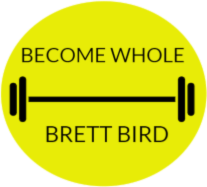Building and cultivating standards involves pain.
I will be the first to say that having standards seems be having a bad rap in our society for a while. We encourage the freedom to do whatever, while often not giving careful consideration for the question of whether or not it’s a good idea. People talk of having standards for our relationships and the areas that involve other people, yet having standards for ourselves often involves having to examine parts of our lives that need improvement. All too often, raising our standards is taken to mean that we need to work harder, and this involves pain.
You will face pain because of your standards or your lack of having them.
Many people today seem to want to delay or avoid anything involving pain. However, pain cannot be avoided, as the delay of a smaller degree of pain usually leads to a greater amount of pain later down the road. This is a big reason why conflict is avoided – we think we can get rid of the pain by not addressing it, and we can employ wishful thinking by believing we can simply avoid pain. Often this can come from a fear of a greater consequence, such as the relationship dissolving if the conflict is directly addressed.
This all stems from the lack of standing of how we conduct our relationships and lives.
Why we need standards and how to start finding out which ones that you should raise based on your situation.
We often place a high value on individualism and doing whatever feels good in the moment. As time goes on, we let the Fear of Missing Out (FOMO) rule our actions and decisions, while sacrificing what is best for ourselves and our relationships. The chase of the temporary high is far more important in the moment than doing what is best for the most important relationship in our lives. A good example is the new phenomenon of people caring more about chasing the lifestyle of a single person while in a relationship or while raising children. Temporary highs are being chased while more valuable relationships are placed on the table.
How can we resolve this? Start by establishing a direction that you genuinely want your life to go in. What would your ideal life look like, and is it realistically attainable? If not, you’re going to have to establish what are the most important elements in your life and then focus on what you can do to sustain or improve on those elements. More importantly, will people that you love and care about be adversely impacted by what you want to do or what actions need to be taken? If so, then you might need to make some allowances or give up some of that stuff if it’s not absolutely necessary.
Lastly, I’m glad to be back writing and posting on here. I recently had to wrestle with tax season for the past couple of months, but I’ve been looking forward to writing more material and focus on perfecting & publishing my next book. I will resume my regular schedule of at least one post per week.

